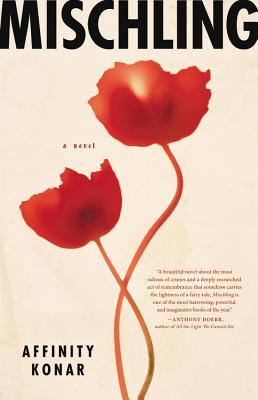
“Materials were extracted from us and colored with dye and placed between slides, set to whorl and fluoresce and live beneath the perspective of a microscope.
Late at night, when Pearl was fast asleep, her consciousness a safe distance from my own, I’d think of these tiny pieces of us and wonder if our feelings remained in them, even though they were mere particles. I wondered if the pieces hated themselves for their participation in the experiments. I imagined that they did. And I longed to tell them that it wasn’t their fault, that the collaboration wasn’t a willing one, that they’d been stolen, coerced, made to suffer. But then I’d realize how little influence I have over these pieces- after we’d been parted, they answered only to nature and science and the man who called himself Uncle. There was nothing I could do on their numerous, microscopic behalf.”
This novel is brutal and from the start my heart fell to the pit of my gut. Written in the vein of literary fiction, about twin sisters Pearl and Stasha chosen because they are ‘special’ to be in Mengele’s Zoo- forced into his horrific medical experiments, their thoughts and imaginings run along as I imagine they would for the young. Each twin copes with the horrors with different truths to feed on, one believing her participation will help her sister, grandfather and mother- the other unable to fool herself with the sort of monster Dr. Mengele is. The other children, that they had seen ‘come and go like minutes’ have their own horror stories and yet even in a place devoid of humanity, there is still fight, resistance, hunger to live.
Slowly both Pearl and Stasha cease to feel human as their bond is streched to the snapping point. They are losing their twinship as much as losing everything that makes human beings what they are. The experiments are more than physical torture, but a twisted withering of the soul, of the very essence of what it means to be human at all. Everything that fed their young lives, the special connection they shared that they could no longer rely on for survival seems to be a goal of Mengele, to destroy hope, love, to rip out of children everything pure. The cold, cruel, detached eye he uses in his ‘experiments’ become monstrous to the bitter end.
When Pearl disappears, Stasha withers, and yet clings still to the hope that her sister isn’t dead. When the Russians arrive, salvation has a different taste. Once again children are marching, but now where? Half dying, tortured, ill, made to feel like an animal thing- how can these survivors trust their freedom? How do you come back to life when brought lower than even death- in limbo? Feliks is vital to Stasha’s survival, and as the two fight of starvation after liberation they encounter different horrors outside of Auschwitz. She had once played nurse to the boy, now returned, and yet he seems to keep the fight in her in a role reversal. No one has been spared, everywhere there are fighters remaining, parents searching for the stolen children- so many that are likely dead. They stay alive for vengeance alone, but revenge is a bitter pill to swallow.
I knew from the moment the girls encounter the other children, kept much like animals, that this story was going to break my heart. That there aren’t enough words to convey certain horrors, that sometimes it requires beautiful prose to dilute the atrocities so the children could survive it and the reader as well, is what worked best for me. The twins personalities undergo a metamorphosis as they drift away from each other, what does it take to escape such place, to shed the shadow of an evil man that seems to be following you forever? Is escape possible through only death, or clinging to life- what little of it remains from the ashes? It is a brutal story to get through, and while Dr. Josef Mengele remains much a mystery the novel certainly paints him as a terrifying figure, a monster out of the deepest recesses of anyone’s nightmarish imaginings. That such a person actually lived and breathed is downright horrifying.
Mischling ( German word for “half-breed” or Jews of mixed ancestry) felt like being trapped in a child’s terrifying nightmare. When I thought about the children’s ages, the separation from families, the ripping apart the twins suffer, the constant fear of the unknown- a place where your worse imaginable horror is a reality, I couldn’t get rid of that weight in the pit of my gut. It is just beyond imagination, as most horrors are, that such things were ever a reality. It isn’t a mystery to me that the novel is about a bond that will never be broken, that the most evil couldn’t extinguish love, even while snuffing out lives. I am not better for having read it, I am not worse, but I didn’t finish the story unaffected. We can empathize, but we cannot understand ever, not really- and one story is never the same as another. Each experience, each nightmare has it’s own unique life and that is why the telling will never be enough.
This novel is cruel, and yet there are glimpses of love and light, and there is still fight to the bitter end. Will there be anything left of either twin, is it possible to ever be free from such a place, such a monstrous man, a time when humanity proved the devil is in man?There is still so much hunger for living, what human being cannot relate to that? A dark-side of human history that is better forgotten and yet can never be.
Available now